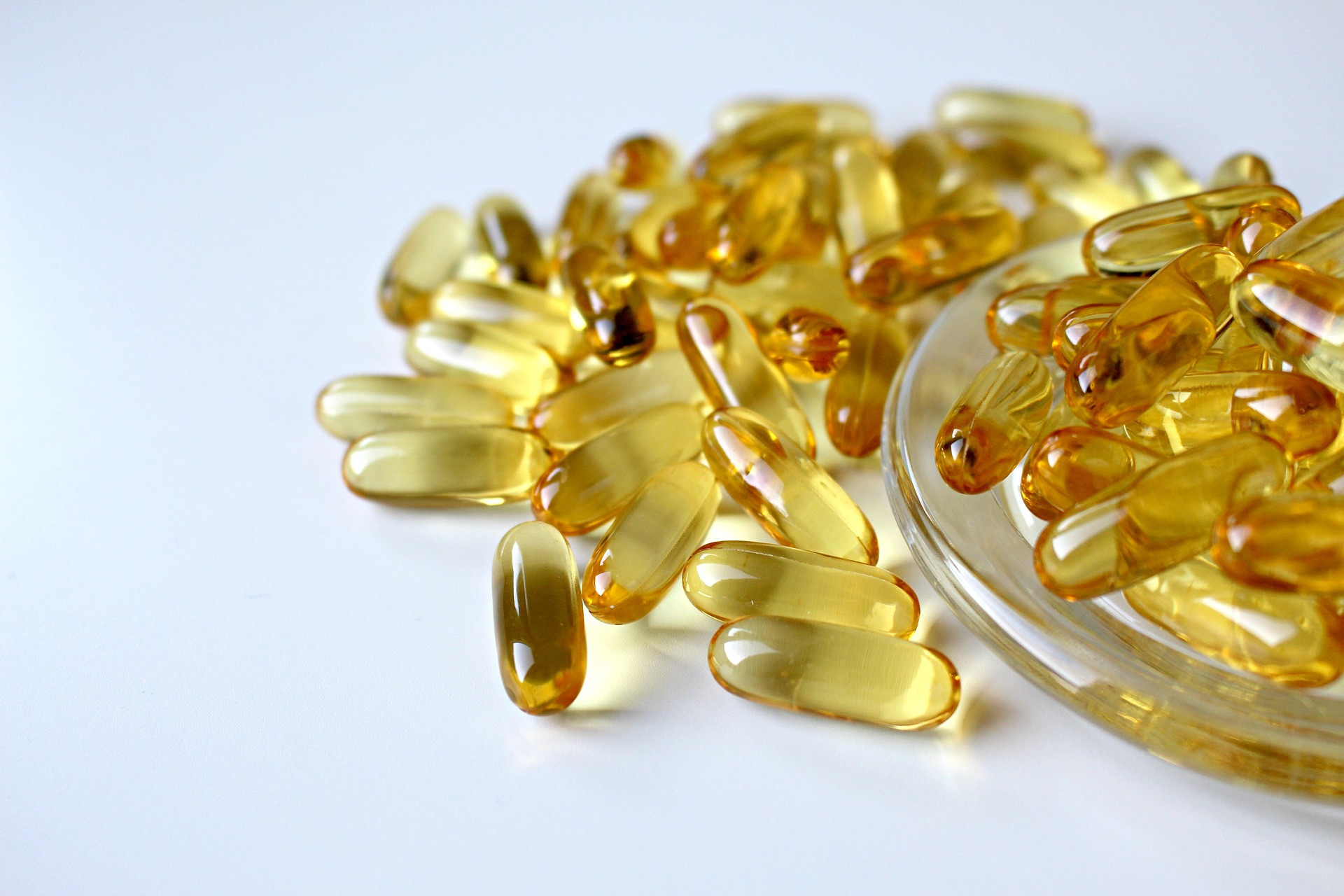Minyak ikan dikenal memiliki banyak manfaat bagi kesehatan dan pertumbuhan anak. Mengonsumsi minyak ikan diketahui dapat menjaga kesehatan jantung dan otak. Meskipun memiliki berbagai manfaat bagi kesehatan, namun mengonsumsinya secara berlebihan bisa memberikan efek samping yang tidak diharapkan.
Bahaya Mengonsumsi Minyak Ikan Berlebihan bagi Kesehatan
Minyak ikan adalah minyak yang dihasilkan dari jaringan ikan yang berminyak. Minyak ikan mengandung sejumlah besar asam lemak omega-3 yang disebut asam dokosaheksaenoat (DHA) dan asam eikosapentaenoat (EPA). Tubuh tidak dapat menghasilkan asam lemak omega-3 sendiri sehingga kebutuhan akan nutrisi ini perlu dipenuhi dari makanan.
Konsumsi makanan yang mengandung minyak ikan bisa memberikan beberapa manfaat ini, antara lain:
- Meningkatkan kesehatan kardiovaskular dengan cara menurunkan salah satu jenis lemak di darah yang "jahat" yaitu trigliserida dan meningkatkan "kolesterol baik" dalam darah walaupun tidak terlalu signifikan
- Membantu menjaga fungsi otak dan kesehatan mata
- Mengurangi proses peradangan
- Menjaga kesehatan kulit
Saat ini di pasaran tersedia suplemen minyak ikan dalam kemasan botol dan kapsul. Dalam mengonsumsi suplemen minyak ikan sebaiknya mengikuti anjuran dokter atau sesuai aturan pakai dalam kemasan. Mengonsumsi suplemen minyak ikan secara berlebihan justru dapat menimbulkan beberapa efek samping.
Baca Juga: Ketahui Manfaat dan Dosis Minyak Ikan yang Tepat untuk Anak
Beberapa efek samping mengonsumsi minyak ikan secara berlebihan antara lain:
Meningkatkan kadar gula darah tinggi
Beberapa penelitian menunjukkan bahwa suplemen asam lemak omega-3 dalam kadar yang tinggi dapat meningkatkan kadar gula darah pada penderita diabetes. Hal ini disebabkan oleh konsumsi omega-3 dalam dosis besar dapat merangsang produksi glukosa, yang dapat berkontribusi pada tingginya kadar gula darah dalam jangka panjang.
Perdarahan
Salah satu efek samping dari minum minyak ikan berlebih adalah perdarahan pada gusi dan mimisan. Sebuah penelitian mengungkapkan mengonsumsi minyak ikan hingga 640 mg per hari selama empat minggu dapat menurunkan kemampuan pembekuan darah pada orang dewasa yang sehat. Penelitian lain mengungkapkan bahwa sekitar 72% orang dewasa yang mengonsumsi 1-5 gram minyak ikan per hari dapat mengalami mimisan sebagai efek sampingnya. Oleh karena itu, suplemen minyak ikan sebaiknya dihindari atau diturunkan dosisnya pada individu yang sedang mendapat terapi obat pengencer darah.
Tekanan darah rendah
Minyak ikan dapat menurunkan tekanan darah. Pada sebuah penelitian terhadap 90 orang yang menjalani dialisis atau cuci darah, mengungkapkan bahwa mengonsumsi 3 gram asam lemak omega-3 per hari secara signifikan menurunkan tekanan darah sistolik dan diastolik jika dibandingkan kelompok pasien yang diberikan plasebo.
Minyak ikan juga dapat berinteraksi dengan obat penurun tekanan darah. Efek ini mungkin bermanfaat bagi individu dengan tekanan darah tinggi. Namun, bagi orang-orang dengan tekanan darah yang rendah, suplemen minyak ikan berpotensi menyebabkan masalah serius. Jika Anda memiliki tekanan darah tinggi dan minum obat penurun darah secara rutin, sebaiknya diskusikan dengan dokter apakah Anda bisa mengonsumsi keduanya secara berasamaan.
Baca Juga: Beda Margarin dan Mentega, Mana yang Lebih Baik untuk Jantung?
Memicu naiknya asam lambung
Banyak orang melaporkan mengalami refluks asam lambung setelah mengonsumsi suplemen minyak ikan. Hal ini disebabkan oleh tingginya kandungan lemak pada minyak ikan. Kandungan lemak pada beberapa penelitian ditemukan sebagai pemicu masalah pencernaan termasuk salah satunya adalah refluks asam lambung. Untuk mencegah risiko naiknya asam lambung sebaiknya konsumsi sesuai dosis yang dianjurkan dokter. Bila Anda mengonsumsi suplemen minyak ikan, suplemen juga bisa dimakan bersama makanan.
Stroke
Mengonsumsi minyak ikan berlebih berpotensi meningkatkan risiko terjadinya stroke hemoragik atau stroke yang terjadi akibat pecahnya pembuluh darah. Meski penelitian ini masih terbatas pada hewan dan dibutuhkan penelitian lebih lanjut pada manusia, namun jika Anda memiliki faktor risiko terjadinya stroke seperti hipertensi, diabetes, dan obesitas sebaiknya konsumsi suplemen berdasarkan petunjuk dokter dan jangan melebihi dosis yang disarankan.
Keracunan vitamin A
Beberapa jenis suplemen asam lemak omega-3 kaya akan vitamin A yang dapat menyebabkan keracunan jika dikonsumsi dalam jumlah besar. Dalam 1 sendok makan minyak ikan cod (14 gr) dapat menyediakan 453% kebutuhan vitamin A dalam satu kali penyajian. Keracunan vitamin A dapat menyebabkan pusing, mual, nyeri sendi dan iritasi. Dalam jangka panjang, bisa menyebabkan gangguan pada organ hati. Oleh karena itu, dosis vitamin A yang ada pada suplemen omega-3 harus diperhatikan.
Mengonsumsi minyak ikan memiliki banyak manfaat bagi kesehatan. Namun mengonsumsi minyak ikan berlebih dapat menyebabkan masalah kesehatan, terutama jika Anda memiliki faktor risiko terjadinya stroke. Jika memiliki pertanyaan seputar konsumsi minyak ikan sebaiknya konsultasikan ke dokter atau manfaatkan fitur konsultasi yang tersedia pada aplikasi Ai Care.
Mau tahu tips dan trik kesehatan, pertolongan pertama, dan home remedies lainnya? Cek di sini, ya!
- dr Hanifa Rahma
Chintapalli, S. (2022). 10 Little-Known Side Effects of Too Much Fish Oil. Available from: https://www.medicinenet.com/10_little-known_side_effects_of_too_much_fish_oil/article.htm
Ajmera, R. (2022). 8 Little-Known Side Effects of Too Much Fish Oil. Available from: https://www.healthline.com/nutrition/fish-oil-side-effects
WebMD. Fish Oil - Uses, Side Effects, And More. Available from: https://www.webmd.com/vitamins/ai/ingredientmono-993/fish-oil
Robertson, R. (2023). 12 Benefits of Taking Fish Oil. Available from: https://www.healthline.com/nutrition/benefits-of-fish-oil











